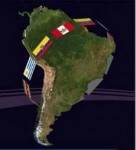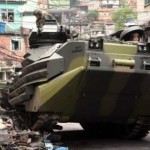Latin-American Soldiers, ‘Peacekeepers’ to Train in Urban Warfare at New US Base in Chile
By Joaquín Rivery Tur, Granma | Commentary by Dady Chery, Haiti Chery. A new U.S. base was hurriedly built in Fort Aguayo, Chile, in 60 days. The facility will train United Nations ‘peacekeepers,’ and Latin-American soldiers and police, in urban warfare. Chilean civil society has denounced the supposed military college as a center to train future repressors and torturers.
Continue reading →

